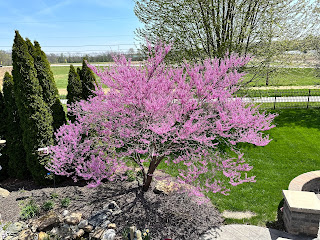Springtime foraging
Ever wonder if you can eat the weeds that pop up in your garden and planting spaces? In some cases, you can!
When foraging for edible weeds, it is important to be sure that you are identifying the plants correctly. Some plants can be poisonous, so it is always best to err on the side of caution. If you are unsure about whether a plant is edible, it is best to leave it alone.
Here are some tips for foraging for edible weeds:
Start by identifying the weeds in your area. There are many resources available online and in libraries that can help you identify edible weeds. I use the following two books, which are helpful for my area in the midwest.
(As an Amazon Associate, I earn from qualifying purchases. I get commissions for purchases made through links in this post.)
Only harvest weeds that you are sure are edible. Use gloves and comfy grip/spring loaded garden tools to protect your hands!
Wash the weeds thoroughly before eating them.
Cook the weeds if desired.
Jump to information about specific weeds by clicking the links below. These are common edible weeds found in the midwest of the United States.
Springtime weeds:
Henbit
Dandelion
General information on harvesting and using "weeds."
When foraging for edible weeds, it is important to be sure that you are identifying the plants correctly. Some plants can be poisonous, so it is always best to err on the side of caution. If you are unsure about whether a plant is edible, it is best to leave it alone.
Collect from familiar areas, where pesticides are not used. Do not collect plants from roadsides. You do not know what, if any, chemicals have been used - not to mention runoff chemicals from the road.
Many edible weeds have medicinal properties as well. The properties could interact poorly with certain medications or health conditions. Consult with your healthcare professional.
This blog is for informational purposes only and does not constitute medical advice. The information on this blog is not intended to diagnose, treat, cure, or prevent any disease. Always consult with a doctor before making any changes to your diet or lifestyle.
The author of this blog is not responsible for any damages or losses that may occur as a result of following the information on this blog. Do your due diligence when researching edible and medicinal plants.


Comments
Post a Comment